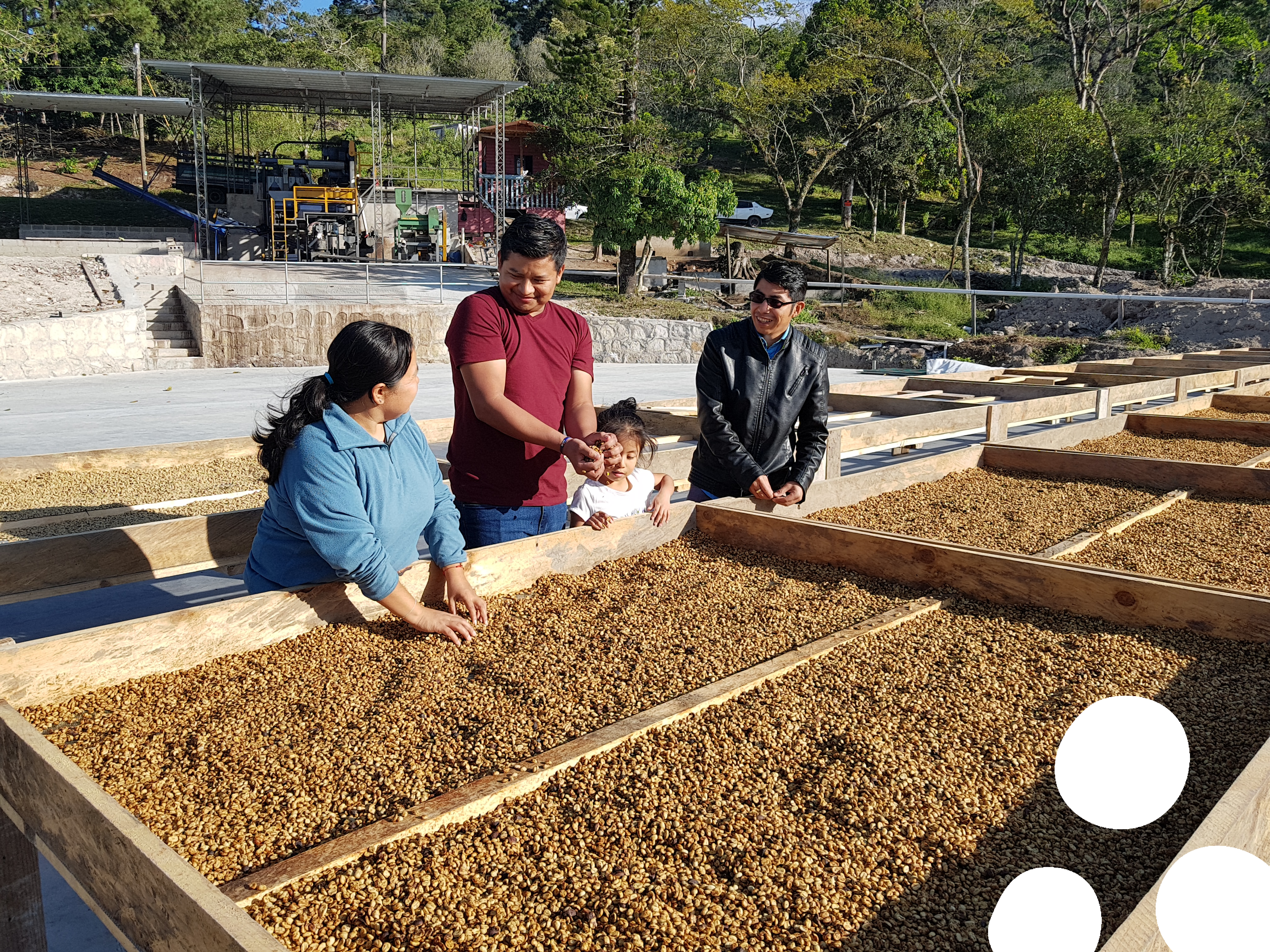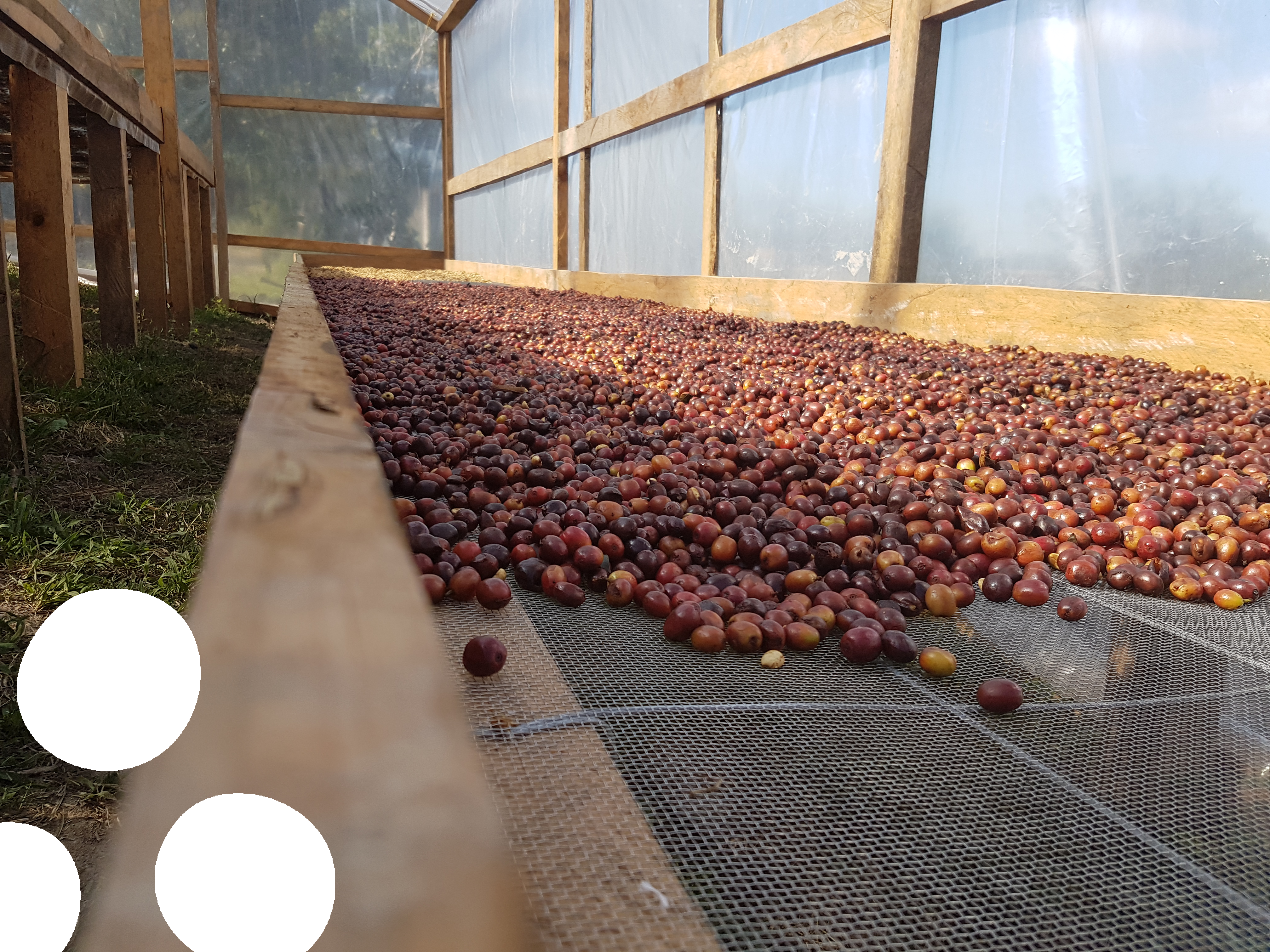.png?width=667&name=Pacayal%20Footer%20(3).png)
The motto of our producer partner, Pacayal Coffee, is “quality does not suffer crisis.” Nestled in the Comayuga Valley in La Paz, Honduras, Pacayal’s motto is one that rings true for many Hondruan producers in the wake of the Roya crisis of 2012. The brother and sister team of Edgar and Karen Carillo founded Pacayal in 2013, a year after the outbreak, with the sole mission of revitalizing the Honduran coffee industry, helping producers recover and bring high-quality Honduran specialty coffees into the spotlight.
It’s been nearly a decade since Pacayal was founded, and it seems like Edgar’s and Karen’s efforts are paying off. While Honduras has long been a staple, top-producing Latin American origin country by quantity, these days Honduras has captured the attention of roasters worldwide for its exceptional processing and quality. It’s no wonder that Pacayal’s offerings are some of our most anticipated coffees year after year.
Along with Chabela Cerqueda, our Central America and Mexico Supply Coordinator, and Gema Lopez, our Quality Control Specialist in the same regions, we spoke with Edgar to learn more about where Pacayal and the Honduran coffee industry are now!
________________________________________________
Pacayal’s first few producer members were friends and family. Prior to founding Pacayal, neither Edgar nor Karen had much experience in coffee farming. “But we quickly immersed ourselves in the coffee industry and gained experience in selling roasted coffee, green coffee commercialization, as well as other projects with producers,” explained Edgar. “We pooled our resources and started buying dry parchment coffee from producers around the area, and sent samples to a lab. We partnered with a wet mill close to the producers, and put into practice everything we had learned, including knowledge from our grandfather who was a coffee farmer.”

From the beginning, Edgar and Karen’s sole focus was to impress the international specialty market. “We wanted the market to fall in love with the producers’ work and quality,” says Edgar. “We did this by focusing 100% on quality and fought for the best prices possible to pay farmers fairly.” From skilled cuppers to quality control experts and reputable exporters, Edgar and Karen brought on help from well-regarded professionals in the Honduran coffee industry to train farmers in the latest growing and processing practices. In just a couple of years after opening their doors, the quality of Pacayal’s coffee quickly established their reputation in La Paz and they were able to rapidly grow farmer membership; currently, Pacayal counts over 130 farmer members.
Adapting to an evolving market
According to Chabela and Gema, many other cooperatives also began to focus heavily on farmer training and improving their growing and processing techniques around the same time as Pacayal. “We noticed around 2008 to 2009 that more Honduran producers were getting involved in expos and industry events. Cooperatives also saw their producer membership grow as more smallholder producers joined organizations.”
By joining cooperatives, producers gain greater access to education, technical assistance, and other resources that can increase their capacity to experiment across a wider range of coffee varieties and processing methods. In many cases, producers are able to diversify their coffee offerings in addition to increasing overall quality.

Sources of inspiration came from Costa Rica and Colombia. “We noticed that other countries like Costa Rica and Colombia were working on different fermentation methods, using different varieties and doing small trial and error tests with honey process or anaerobic fermentation,” says Edgar. “We became really interested in trying new methods and were open to having experiments whenever roasters requested them. I try to pay attention to the latest trends in the specialty market.”
In 2015, Pacayal placed 4th at the Honduras Cup of Excellence with their first ever natural (which also happened to be coffee from Edgar’s mother’s farm). Today, Pacayal offers an array of variously processed coffees, from naturals to anaerobic fermented coffees.
A shift in mindset
It’s not just about having greater access to resources, however (although it is, of course, still hugely important). Edgar has noticed a shift in perspective among coffee farmers in Honduras. “They’re changing their mindset about coffee,” he says. “Producers across Honduras have gradually stopped seeing coffee farming as just a way to survive year after year, and are looking for ways to grow their business.”
With support from cooperatives, producers are approaching farming with an entrepreneurial spirit. “It’s not rare to see producers taking the initiative to meet the needs of their buyers,” says Gema. “When our quality control team provides feedback to producers, you can see how seriously they take it. We can taste the results by the next harvest.”
This is especially true among cooperatives run by younger producers, and, Pacayal, of course, is the shining example. According to Edgar, it seems that in Honduras, more young people are taking up coffee farming—and not just out of necessity but with genuine interest. Younger farmers entering coffee keeps the industry in Honduras more competitive and motivates producers to keep innovating.
-00512.png?width=2048&name=SH-Next%20Gen%20(Switzerland)-00512.png)
“When producers start thinking more like entrepreneurs and as business people, they get more involved in the cooperative,” says Edgar. “They start working as a team and developing long-term partnerships. They start thinking more strategically about investing time and improving their practices, knowing that it will turn into higher income.”
At Pacayal, Edgar and Karen are always looking for ways to grow their business by investing in the professional development of the next generation of farmers on their team. “We are trying to educate and mold young professionals across our teams, from people in the marketing department to technicians because we know they will not only help us improve the business, but they will have a positive impact on the coffee industry overall. Hopefully we will make them want to stay in coffee and not migrate to other industries.”
________________________________________________
We currently have just-landed spot coffee available for purchase from Pacayal. If you’re interested, you can order samples of their phenomenal coffee here!



.png)
